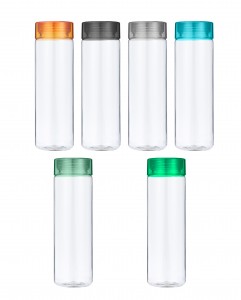Plastic bottles have become an essential part of our daily lives. From quenching your thirst on hot summer days to storing all kinds of liquids, they’re certainly handy. However, the large amount of plastic waste generated has led to growing concerns about their impact on the environment. The most pressing question is, can plastic bottles really be recycled? In this blog, we take a deep dive into the journey of plastic bottles and explore the possibilities and challenges of recycling.
Lifespan of plastic bottles:
The life of a plastic bottle begins with the extraction and refining of petroleum, a fossil fuel used as the main raw material for plastic production. Therefore, the environmental impact starts from the very beginning. Once a plastic bottle is manufactured, it is distributed, consumed, and eventually disposed of.
Recycling plastic bottles: a complex process:
Plastic bottles are usually made from polyethylene terephthalate (PET), a plastic known for its recyclability. However, not all plastic bottles are recycled due to a number of factors. First, pollution is a big problem. Bottles should be emptied and rinsed before recycling to avoid cross-contamination. Second, different types of plastics cannot be mixed during the recycling process, limiting the recycling of some bottles. Finally, lack of awareness and unavailable recycling facilities pose challenges.
Classification and collection:
Sorting and collecting plastic bottles is a critical step in the recycling process. With advanced technology, the sorting machine can identify and separate different types of plastic bottles according to resin type. This initial step ensures that the next stage of recycling is more efficient. However, proper collection systems need to be in place to enable recycling for everyone.
Recycling method:
There are various methods of recycling plastic bottles, including mechanical recycling and chemical recycling. Mechanical recycling is the most common process, where bottles are shredded, washed, melted and converted into pellets. These recycled pellets can be used to make other plastic products. Chemical recycling is a more complex and expensive process that breaks down plastic into its basic components, producing plastic that resembles virgin. Both approaches help reduce the need for virgin plastic and conserve resources.
Challenges and innovations:
Despite efforts to recycle plastic bottles, challenges remain. A major challenge lies in inadequate recycling infrastructure, especially in developing countries. Education and awareness programs and improved public waste management systems can address these challenges. Additionally, innovations in biodegradable plastics and alternative packaging materials are emerging to reduce the environmental impact of plastic bottles and provide sustainable alternatives.
As consumers, we have an important role to play in recycling plastic bottles. Through responsible consumption, proper disposal and active support of recycling initiatives, we can contribute to reducing our environmental impact. However, relying solely on recycling is not a long-term solution. Widespread adoption of refillable containers, use of alternative packaging materials and adoption of a circular economy approach are important steps towards reducing plastic waste. So next time you come across a plastic bottle, remember its journey and make a conscious choice in order to have a positive impact on our environment.
Post time: Aug-24-2023
